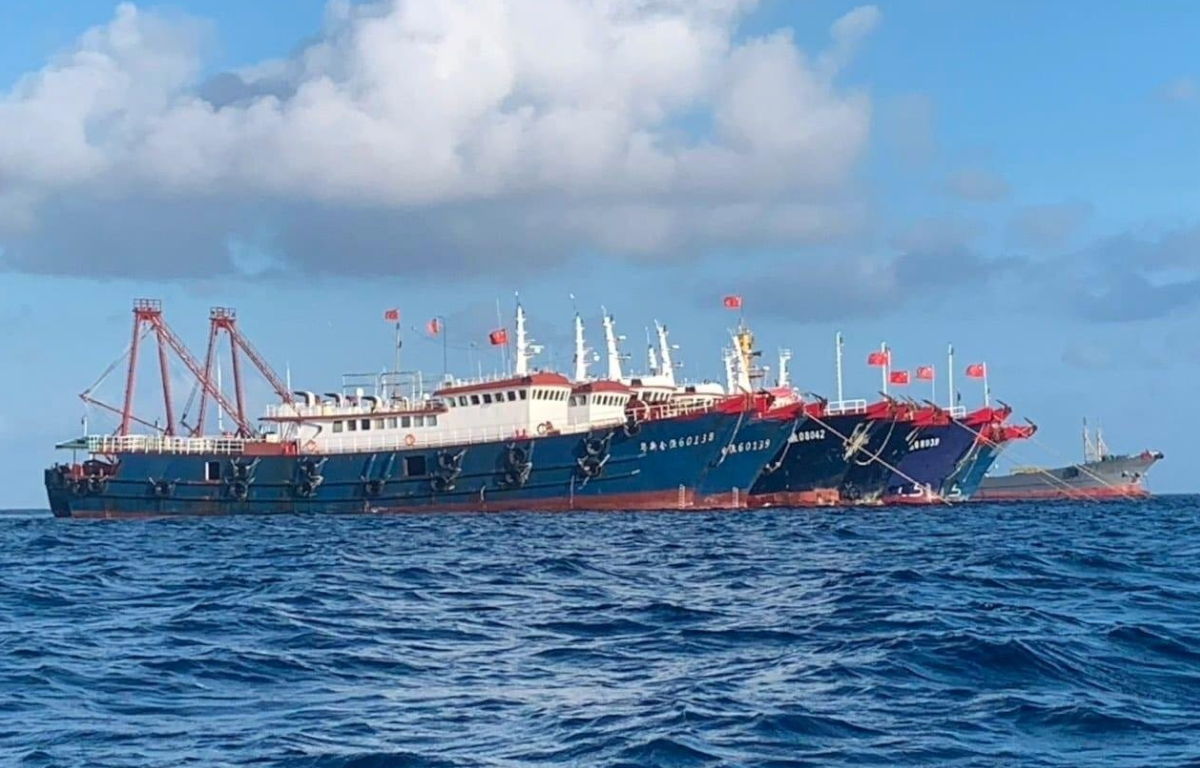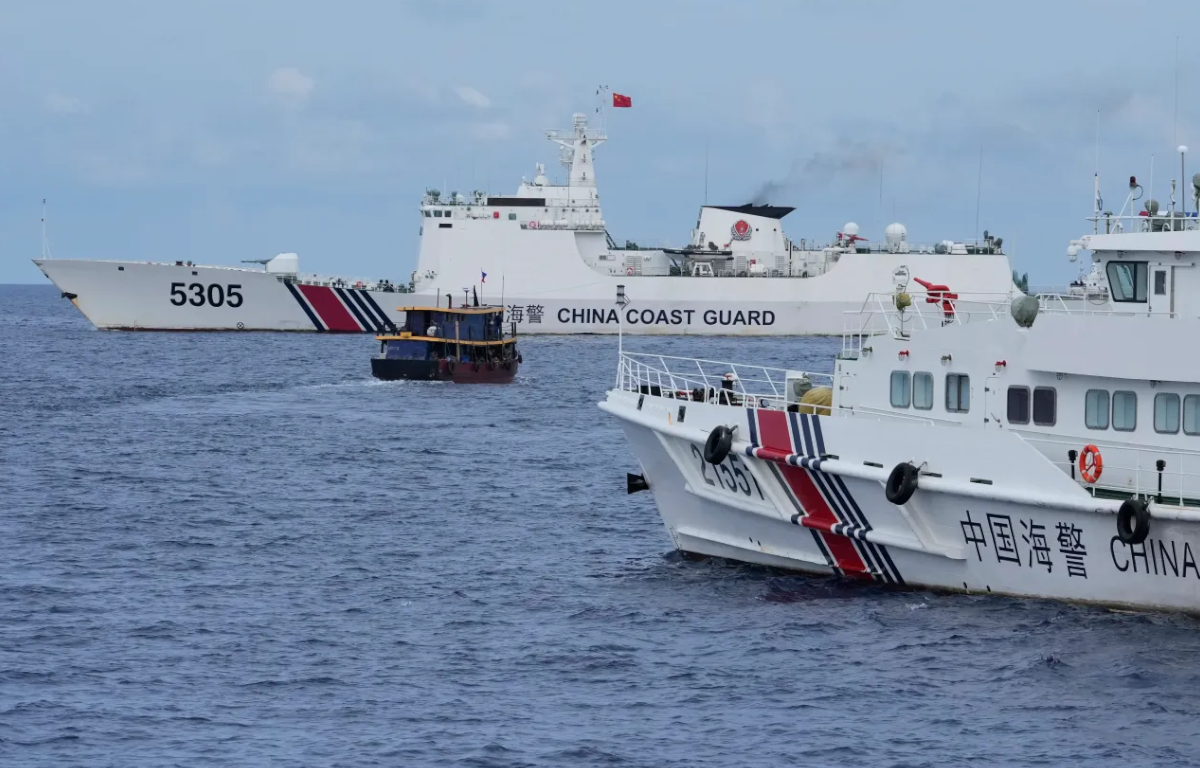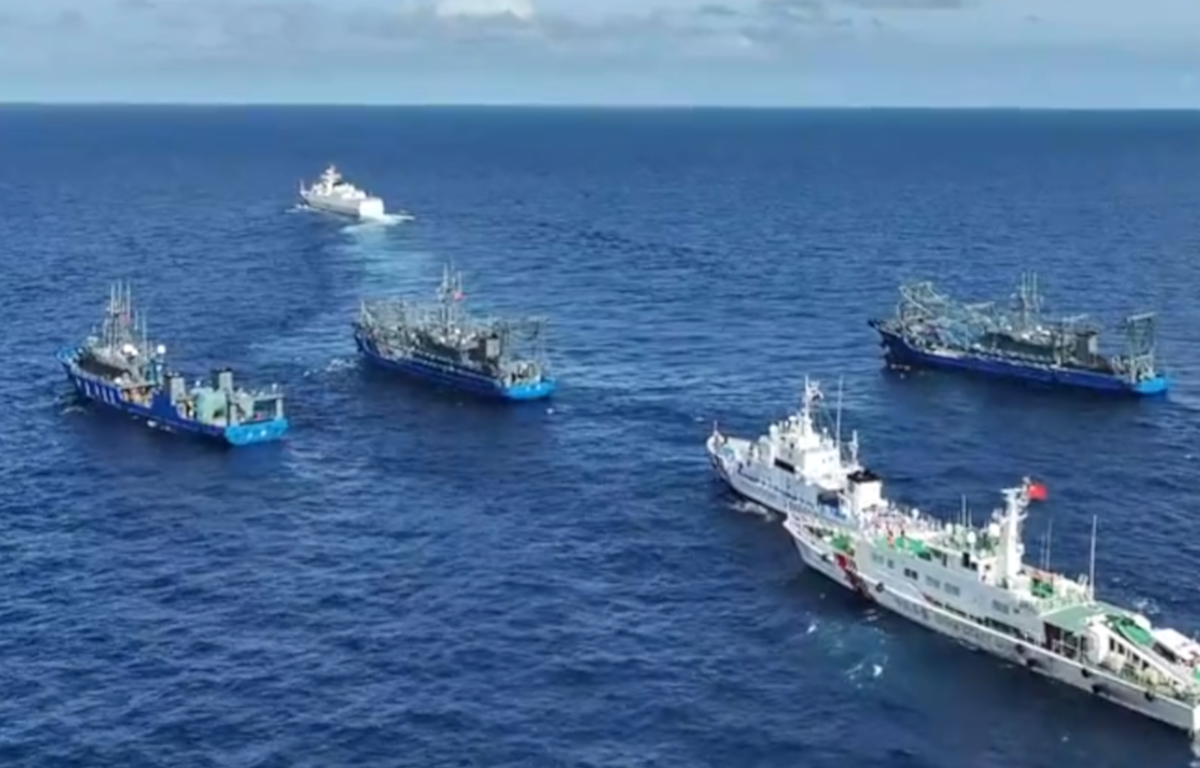
The South China Sea is a strategically important body of water, bordered by several Southeast Asian countries, including the Philippines, Vietnam, Malaysia, Brunei, and Taiwan. China has claimed vast portions of this sea, demarcated by its ‘nine-dash line,’ which encompasses nearly 90% of the waterway. These claims overlap with those of other countries, leading to territorial disputes.
The Philippines has long been at odds with China over territorial claims in the South China Sea, particularly in the Spratly Islands and Scarborough Shoal. The Philippines successfully challenged China’s claims in a 2016 international tribunal ruling, which declared China’s assertion of historical rights to the sea as having no legal basis. Despite this ruling, tensions have continued to simmer, and the South China Sea remains a flashpoint for regional conflicts.
The recent controversy centers around the installation of a ‘floating barrier’ in the vicinity of the disputed Scarborough Shoal. The Philippines and other regional actors have voiced strong objections to this move. According to reports, the barrier is a long chain of floating buoys and markers, which some analysts believe could be used for military and strategic purposes.
The Philippines has expressed deep concerns about the implications of this barrier. It argues that such installations undermine efforts to find peaceful and diplomatic solutions to the ongoing disputes in the South China Sea. Additionally, there are concerns that the barrier could disrupt the livelihoods of Filipino fishermen who rely on these waters for their sustenance.
The installation of the ‘floating barrier’ has not gone unnoticed on the international stage. The United States, a key ally of the Philippines, has expressed its support for the Philippines’ stance and reiterated its commitment to a free and open Indo-Pacific. Other nations, including Japan and Australia, have also voiced concerns about the situation.
The international community has consistently called for the resolution of disputes in the South China Sea through peaceful means, such as negotiations and adherence to international law, particularly the United Nations Convention on the Law of the Sea (UNCLOS).
The Philippines’ condemnation of the ‘floating barrier’ in the South China Sea underscores the ongoing challenges and complexities of the territorial disputes in this critical region. It is essential for all parties involved to exercise restraint, prioritize diplomacy, and work towards peaceful resolutions. The international community’s role in urging compliance with established norms and international law is pivotal in ensuring that the South China Sea remains a place of cooperation and not conflict. A peaceful, rules-based approach is the best way forward to maintain stability in this strategically significant area.










Share this: